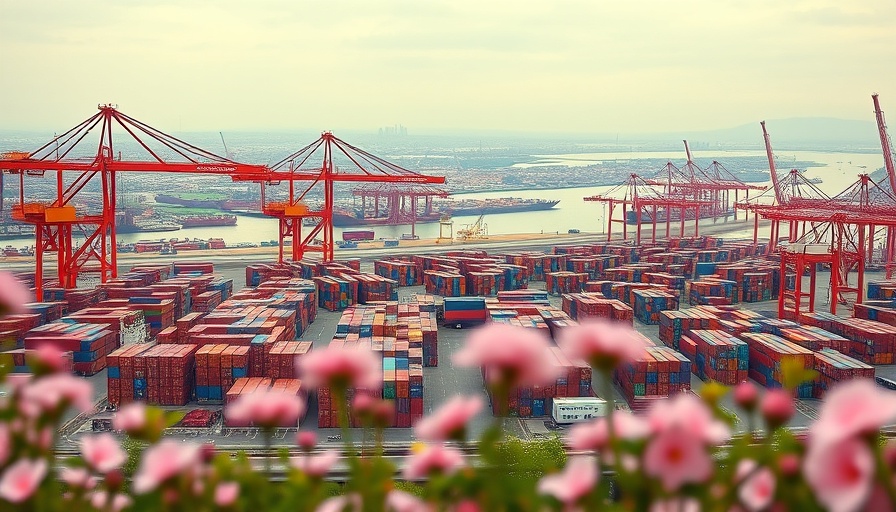
Trump's Bid for Fair Trade: What It Means for Investors
In a recent statement aboard Air Force One, President Donald Trump emphasized the priority for the U.S. to secure a ‘fair trade deal’ with China. As the world closely watches the dialogue between these two economic powerhouses, the implications for investors, traders, and everyday consumers ripple across numerous sectors.
Understanding the Context: Trade Relations with China
Trade relations between the U.S. and China have been a focal point of economic discussions for years. The complicated interplay of tariffs, trade agreements, and negotiations has directly impacted sectors ranging from technology to agriculture. Trump's insistence on a fair trade deal signals a potential shift in strategy that could reverberate through markets.
The Potential Impact on the Stock Market
How could a ‘fair deal’ affect the stock market? Investors might speculate on sectors likely to benefit from reduced tariffs and stronger trade relationships. For instance, companies in the tech sector, often reliant on materials and manufacturing from China, may see a boost if trade barriers are lifted. In contrast, companies deeply entangled in sectors experiencing tariffs may falter until clarity emerges from negotiations.
What Investors Should Watch For
As the possibility of trade agreements unfolds, savvy investors should stay informed about potential announcements or shifts in U.S.-China relations. Observing market trends will become critical, as well as developing strategies around asset allocation. Key areas to monitor include:
- Technology Stocks: Firms that rely heavily on Chinese manufacturing may see changes in their stock prices, making them essential to watch.
- Commodity ETFs: As trade deals influence demand and supply across commodities, ETFs in this category could offer insights into underlying market movements.
- Growth vs. Value Investing: Understanding how trade agreements impact these investing styles can help inform better asset choices moving forward.
The Long-term Implications of Fair Trade Agreements
While immediate changes in the stock market are evident, the long-term implications could shape investment strategies in various sectors. A robust trade deal could foster economic growth, leading to increased consumer spending and higher corporate earnings. Investors typically respond positively to growth indicators, potentially driving up equity prices across the board.
Real Estate and Trade Relations
The impact extends beyond stocks into real estate—the housing market often hinges on economic stability. If a fair trade deal boosts economic morale, there could be a spillover effect leading to better housing sales and construction projects. As investors, considering real estate investment trusts (REITs) connected to growth sectors may present an appealing opportunity.
Looking Ahead: Preparing for Market Changes
In an environment of uncertainty, approaching investing with a strategy centered on risk management is paramount. Portfolio diversification will be a key element in adapting to market fluctuations stemming from trade negotiations. Here are some steps investors can take:
- Monitor Economic Indicators: Track inflation rates, interest rates, and employment data as these can influence market conditions.
- Consider Alternative Investments: Exploring areas such as venture capital or asset-backed securities can offer growth potentials that hedge against traditional market volatility.
- Educate Yourself: Resources and tools abound for investors looking to adapt strategies in light of changing market dynamics.
Conclusion
The call for a fair trade deal with China by President Trump is more than a political statement; it presents a myriad of opportunities and challenges for investors. By staying informed and agile, investors can strategically position themselves to capitalize on the potential benefits and mitigate risks as negotiations progress.
As markets await clarity, now is the time to refine your investment strategies to remain ahead of the curve. Explore the nuances of portfolio diversification and risk management to prepare for an evolving economic landscape.
 Add Row
Add Row  Add
Add 



Write A Comment